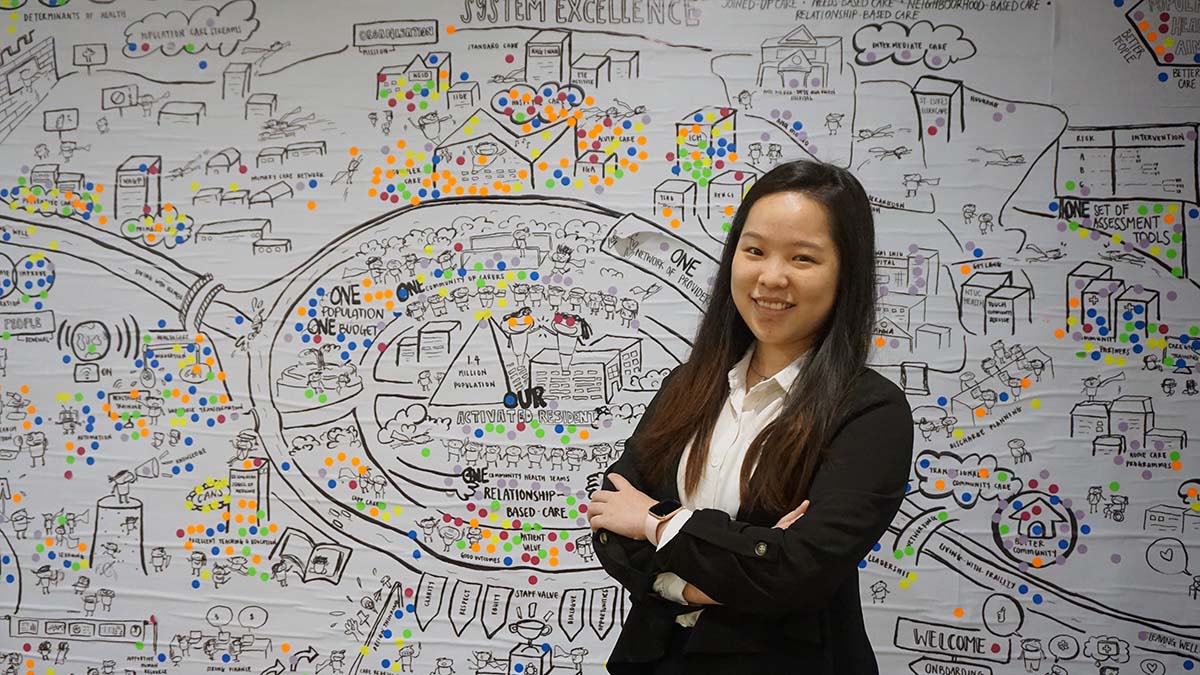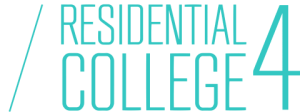Systems Thinking at Work

How my internship gave me a greater appreciation of my RC4 experience
By Sun Yue
I must admit, my first impression of the term "command, control and communications" (C3) wasn't all too favourable. It sounded somewhat ominous to me - which, I later found out, was due in part to how the concept originated from military doctrine and strategy. Originally used to describe procedures employed by military commanders when carrying out missions, C3 has since deployed itself in civilian settings, for operations that require similar precision in oversight, coordination and execution. Once I discovered, though, how transformative C3 was in solving real-world problems - and how it could be viewed through the lens of systems thinking - the term took on new meaning for me. My encounter with C3 came about in January last year (2021), during my six-month attachment to Tan Tock Seng Hospital (TTSH), as part of their management internship programme.
As the Covid-19 pandemic had put paid to my exchange plans, I decided to change tack and take a half-year leave of absence to explore career options instead. I had always been interested in healthcare, so joining a hospital to observe healthcare professionals at work was a natural choice for me. TTSH's management internship programme was both comprehensive and well-planned. While my position was primarily in outpatient pharmacy management, the programme provided opportunities to explore different areas within the hospital, while obtaining more insights into its history and operations.
Part of our orientation involved learning about TTSH's C3 system, and how it functions as the nerve centre of the hospital. Similar to an airport control tower, TTSH's C3 system gives its staff a bird's-eye view ability to monitor patients and provide them with targeted and timely care, based on data-driven decisions. Before the implementation of the C3 system, hospital bed allocation, for instance, could be quite cumbersome.
From using pens, paper and phones to assign beds to patients and keep track of bed occupancy, the hospital now uses algorithms to optimise bed allotment in view of the severity of patients' medical needs, with real-time indication of bed availability contributing to speedier allocation times. Likewise, logistics have become less of a challenge; the system is also able to keep track of how many gloves and masks, for example, have been used daily, and data analytics allows TTSH to foresee and respond to any supply deficiencies before they occur. Most crucially, the C3 system was instrumental in helping TTSH manage operations during the peak of the Covid-19 pandemic in Singapore. Devices known as Real-Time Location Trackers provided the C3 system with data about staff movement, allowing the hospital to track contacts with Covid-19 patients and respond accordingly.
As I tried to make sense of the system as it was being explained to the interns, I soon realised: I was actually looking at systems thinking in action. Reinforcing and balancing processes were taking place between multiple, inter-related variables, where feedback from one variable would cause a change in another, resulting in certain behaviours or actions that needed to be taken in response. Seeing how what we learnt in theory could be applied in the real-world - and making this connection - was eye-opening for me.
During the remainder of my internship, I was able to better appreciate each function taking place within TTSH, knowing how all parts of the hospital were intricately integrated. Additionally, it helped me recognise how special my Residential College 4 experience has been.
I found out, around the same time, that learning systems thinking at the undergraduate level is a privilege, as it is usually studied at postgraduate levels. Having this opportunity to see the big picture of systems at work was one of the reasons why I applied to be a resident assistant in RC4 after my internship. Besides my desire to contribute to a community that has shaped me tremendously, I'd like to go one step further.
By sharing with my juniors what I've learnt from my internship, as well as my other experiences in RC4, I hope to provide that spark for them to see how systems thinking can have a powerful impact on our world, when it comes to problem-solving for the present and future.
Sun Yue is a Year 4 Life Sciences major in NUS and a resident assistant in RC4 for AY2021/22.


